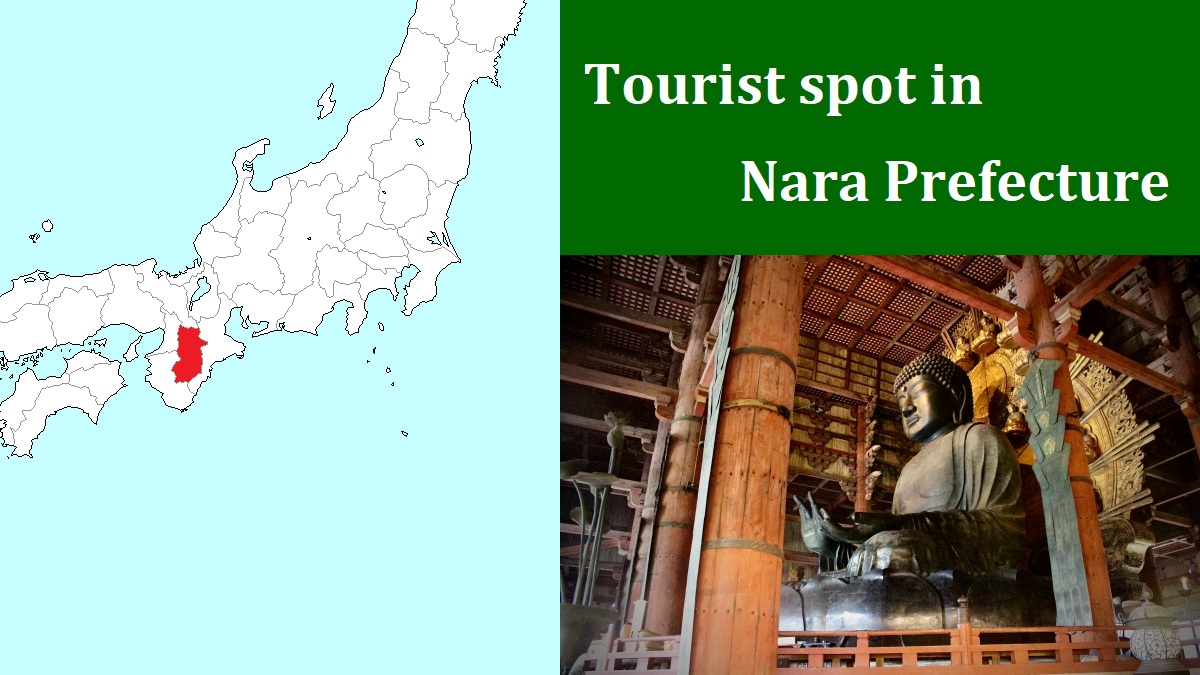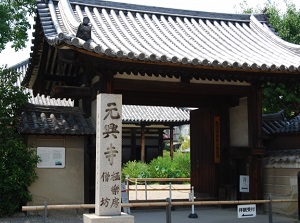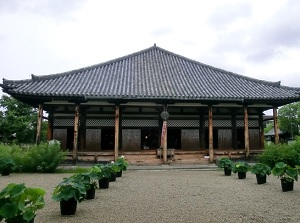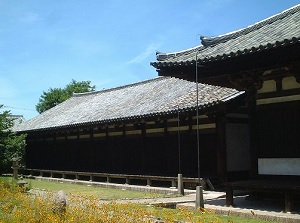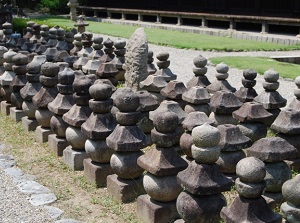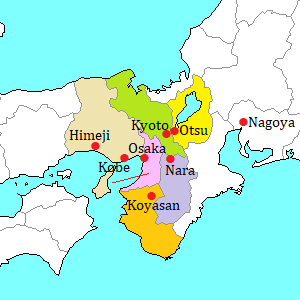Gangoji temple [元興寺]
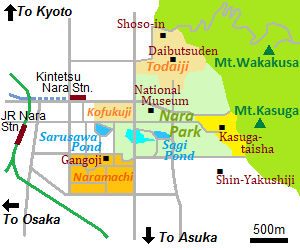
Gangoji is a Buddhist temple.
"O" in the word is pronounced long, so it is read as "Gangôji".
It is located about 0.6 km south of Kofukuji temple.
This temple is one of 9 constructions of "Historic Monuments of Ancient Nara" designated as a World Heritage Site.
Originally this temple was founded in Asuka village located about 25 km south of Nara city in the late 6th century.
The name was Hôkôji at that time, and it was the Japan's first large Buddhist temple.
After Nara city became the capital, the temple was moved to Nara city in 718.
It was the current Gangoji.
The original Hôkôji was also kept as a temple in Asuka village, and it has become current Asuka-dera (飛鳥寺).
Gankoji was a large temple, along with Todaiji and Kofukuji.
Todaiji and Kofukuji had gained power.
Conversely, Gankoji had followed a course of decline since the 10th century.
In 1451, this temple was destroyed by fire by peasant revolt.
Then only a few buildings survived apart.
And in the middle of the 19th century, the site became a town and Gangoji had been a temple in a narrow site.
The temple had fallen into decay like a haunted temple by the 1950s.
A new chief priest had begun to repair the temple since that time, then the temples were designated as national treasures.
In the 1960s, this temple came back from the dead.
Higashi-mon (東門, East gate) is the entrance gate, and was built in the early 15th century.
The main temple is called Gokurakudo (極楽堂).
The triangular roof is unique as Japanese temple.
It was rebuilt in 1244, the original woods in the 8th century are used as some parts of this building.
There is Zenshitsu (禅室) next to Gokurakudo.
It is the house for Zen training.
As a result of investigation, the woods cut in 582 are used in this building.
These two buildings are designated as national treasures.
How to get here
On foot, about 25 minutes from JR Nara station, about 10 minutes from Kintetsu Nara station.

